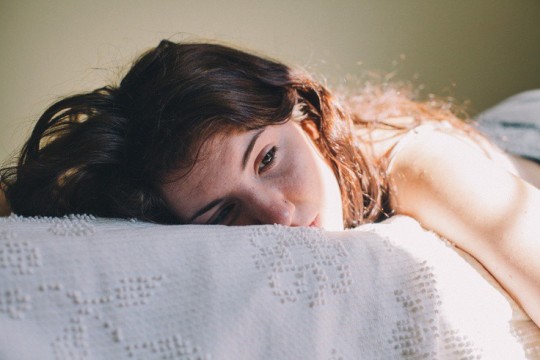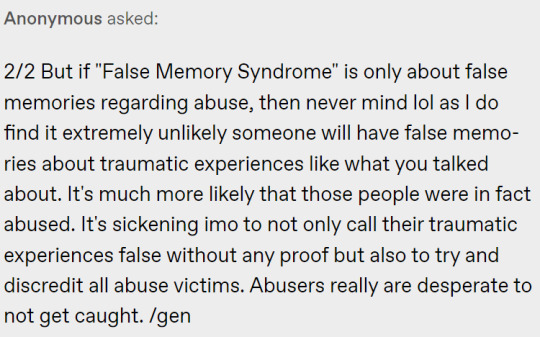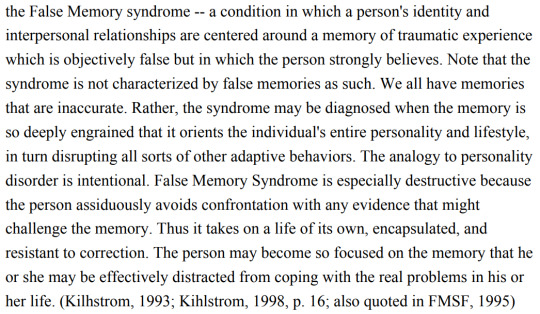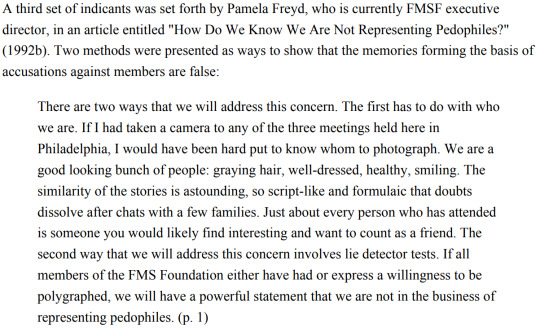#child psychiatry
Text
“One of the things that’s really driven me in my work with children and abuse is you see how the general public have so much empathy and gushing sentimentality for abused children and these poor little three, four, five, six-year-olds. By their twenties and thirties, they’re alcoholic and they’re addicted to heroin. And suddenly the public have turned off their empathy switch, and we’ve forgotten the developmental roots of that. And so, as I moved in my own career away from child and adolescent psychiatry into adults’ addictions, what became patently clear was that these patients in their thirties, forties, fifties with alcohol and opioid addictions were the same cohort of little four, five, six-year-olds that I’d cared for in the past.”
Dr. Ben Sessa, in an interview from How to Change Your Mind by Michael Pollan
#dr Ben sessa#michael pollan#psychiatry#psychology#how to change your mind#addiction#substance use#substance use disorder#abuse#trauma#childhood trauma#alcoholism#heroin#opioid#child psychiatry#childhood development#devolopmental psychology
25 notes
·
View notes
Text
Child & Adolescent Psychiatry and Mental Health
Child psychiatry and adolescent psychiatry are mental health care fields tailored to diagnosing and treating mental health conditions in children and teens. Our expert adolescent psychiatric providers focus not just on the psychological impacts of what your child is struggling with, but also on the important biological and social components of their current stage in life.
Adolescent Psychiatry helps children or teens struggling with mental health. Our specialists can help in the diagnosis and the treatment of behavioral disorder.
0 notes
Link
Marital counselling is a type of psychotherapy that helps resolve conflicts between couples and improve relationships. It is often offered by family and marriage therapists to help couples make decisions about whether to rebuild their relationship or go their separate ways.
0 notes
Text
I've never heard of someone talk about putting a child on psychiatric medication who wasn't talking about either how easy the child was to deal with, or how normal the child was. I've never seen someone talk about how happy the child is.
Its the same with adults. You almost never hear someone talk about how they or someone they know is or will be happier on meds. You hear them talk about how much more normal they act, or how much easier it is for them to submit to capitalism.
Most of the actual discussion of how people feel on meds comes down to them talking about how they feel worse on meds, how they're being hurt by them. Awful side effects that make their lives unquestionably worse. And it's all supposed to be worth it in some quest to be normal, this hope people have that if they mutilate themselves enough they'll be neurotypical.
Its not that nobody is happier on meds, it's that I feel like the vast majority of people on meds wouldn't be if their metric was happiness.
#196#my thougts#leftist#leftism#anticapitalism#anticapitalist#antipsychiatry#antipsychotics#antidepressants#neurodiversity#neurodivergent#actually autistic#actually mentally ill#actually adhd#autistic#autism#adhd#anxitey#anxienty#mad lib#madlib#mad pride#anti psych#medication#anti psychiatry#psych abolition#psych abuse#child abuse#nuerodivergent
61 notes
·
View notes
Text

“The greatest burden a child must bear is the unlived life of its parents.”
Carl Jung (1875 - 1961)
#carl jung#psychology#psychoanalyze me#psychoanalysis#psychiartist#psychiatry#child abuse#childhood#childhood trauma#trauma#burden#parenting#bad parenting#narcissistic abuse#narcissism#narcissistic parents#emotional abuse#literature#poetry#poem#quotes#writing#life quotes#dark academia#dark academia aesthetic#dark academism#real life#life#dead poets society#fragments of my mind
126 notes
·
View notes
Text
without fail, every time i talk about the abuse of mentally ill children at the psych wards to explain these places should not exist and are not there to help people, there is always at least one person who reads it and is like "not all psych wards!!" like. i am going to [redacted]. the few places that are "better" are not the rule, they are the exception. and they BY NATURE still strip people of their autonomy - their freedom - due to the institutional and authoritative standards of "care." so given everything i already said, why the fuck do you still want that?
do you not see us as deserving control over our lives? do you think we're incapable of choice and need people to force their will onto us? do you think an observer can know more about a persons wants and needs than the patient themself? do you really think throwing a bunch of highly distressed people into a glorified cage, surrounded by professionals who decide how they eat, sleep, socialize, and do literally anything, is going to result in a healing experience? if so, why?
#softspoonie#disabled#disability#psych ward#psych survivor#antipsychiatry#antipsych#anti psych#anti psychiatry#ableism#sanism#psych hospital#institutional abuse#psychiatric abuse#child abuse#mentally ill#mental illness#abolition#psych abolition#psychiatry abolition#psychiatry#vent
325 notes
·
View notes
Note
"Bottom line: False Memory Syndrome is a made up condition that’s never been recognized in the DSM or the ICD, created by accused child molesters with the intent of protecting other accused child molesters." I think it's worth knowing that you actually can mess with someone's memory and "implant" false memories into them. You can even already possess them unknowingly (like making someone believe X is the perpetrator when they were just an innocent bystander. Or the Mandela Effect.) 1/2.

Yeah, False Memory Syndrome is typically just applied in regards to abuse.
It is possible to confabulate some memories. But the so-called False Memory Syndrome goes far beyond that and suggests that these false memories are things that become core to the person's identity.

And it's this theory that is unsubstantiated.
Additionally, some may wonder how they determine who is a child molester and who isn't. Well, as good ol' Pamela Freyd explains, all of their clients are good-looking people who are healthy and well-dressed. Therefore they can't possible be child molesters!

I can't even make this up! 🤮
Stereotypes like this, that someone can't be a sexual abuser because they're good looking and nice, have plagued victims of abuse since forever. Not even just CSA either. One only needs look at the people who are assumed to be innocent of these sorts of crimes simply because they're famous.
It's this type of mentality that the FMSF has helped to foster.
(Also, lie detectors are notoriously unreliable and can be fooled with practice.)
30 notes
·
View notes
Text
I. already kind of regret choosing to write a huge paper about play therapy as an alternative to ABA. almost all of the research I have found into play therapy treatment has presented it as something that should be provided in addition to ABA for supposed behavioral benefits, which is fucking asinine. the number one goal of child-centered play therapy is to cultivate an environment of self acceptance, and ABA is completely antithetical to that. if I have to read one more fucking article that talks about how play therapy did or didn't have an impact on the amount of eye-contact a child made at home as if anyone should give a shit about that I'm going to kill us all with hammers
#chatter#don't get me wrong though i have a LOT of material for a paper#i'm really going to tear into these studies and explore the hypocrisy of combining these two therapy types#& present child-centered play therapy as something that should be explored bc of the fact that children with autism are often ostracized#and deserve a therapeutic environment in which they can cultivate a healthy sense of self#and at least half of this paper is going to tackle medical abuse and the autism industrial complex#i'm still excited to go off i just. ggghdg i hate psychiatry so much i hate academia i hate medical research fuck all of this
14 notes
·
View notes
Text
Idk if there's enough people talking about what a gigantic energy drain Complex PTSD is. It's not just one single traumatic event, it's having lived in a traumatic situation for a long time. And in the case of child abuse, your entire formative life period. Everything is a trigger, anxiety is your default, and your brain keeps trying to keep you safe by yelling at you about everything you're doing "wrong", which will lead to pain. Your brain is a constant war zone, braced for attack, rarely relaxed, at least some part of you always hypervigilant. The stress it takes on your body is insane. It's why trauma is linked to autoimmune issues, heart disease, type 2 diabetes, and, according to one study, cancer.
Physical disability leaves you even more vulnerable and less able to live up to the impossible standards of control and "correct" behaviour your brain insists on, not to mention the free gift given to all patients of chronic illness that is medical gaslighting and patient-blaming, all of which simply compounds the trauma. Reduced physical and mental health obviously leads to systemic risk factors such as inability to pursue academic and professional qualifications, poverty and financial struggle, malnutrition, becoming unhoused or bad living conditions, exacerbated medical issues and further lack of medical resources, reliance on welfare and care networks, and becoming trapped in codependent, abusive or toxic relationships. The knock-on effects are endless.
This is all to say— if you're wondering why you can't seem to do more than the bare minimum every day when you haven't been diagnosed with a physical illness, or you're "not that disabled", or you think your symptoms are "just psychosomatic" (which means your brain is under so much intolerable stress that it's started taking a chair to the windows and destroying the furniture just to get you to NOTICE AND MAKE IT STOP): the answer is that your body is actually struggling under the kind of stress that kills trained soldiers and disables them for life. So stop trying to convince yourself that you're just not trying hard enough when what you really, desperately need to get your life on track is community, care, rest and ease.
#the medicalization of mental health is just capitalism trying to cover its ass#isolating physical and mental illness makes the entire medical complex an abject failure actually#''disease'' should refer to a state of being rather than its outcome imo#i've never heard of one that wasnt simply the visible symptom or ramification of the core problem or situation#like I'm grateful for the anti-depressants and bipolar meds and all but i just think a lot more problems would be solved#if someone gave me a place to live with peace and quiet and living assistance#i mean I'd still need the meds its not either/or#but I wouldn't need to be on ever increasing doses for the rest of forever#also if there was some kind of holistic understanding of health that bridged psychiatry with the fest of the medical complex#they could have taken one look at how badly I broke down at age twenty and worked to prevent my inflammatory disease being triggered#or at least not gaslit me about it for seven years until i nearly lost a colon#you just absolutely bloody cannot treat health as separate from socioeconomics and community support#this shouldn't be new or revolutionary#actually cptsd#complex ptsd#ableism#disability#healthism#child abuse#emotional abuse#domestic abuse#intimate partner violence#parental abuse#chronic illness#spoonie#knee of huss#mental illness#autoimmune disease#social justice#psychosomatic
26 notes
·
View notes
Text
btw if u equate childe and aventurines backstory in any fucking way please leave this blog and unfollow me <3 preferably block me while ur at it too uwu
#havent you people done enough to systematically destroy his characterization already? genuinely curious#turning him into generic YA sadboy with no narrative purpose according to yall than to be traumatize meow meow smolbean#who has no greater purpose no greater relevance whos just a victim with 868 made up mental illnessess#and actually the fact that he canonically displays no typical signs of mental illness or distress proves he has giga trauma#because we all know the writers intention is always the thing they give 0 time on screen 0 hints at in lore 0 presence in canon#because you people are so fucking boring and incapable of basic reading comprehension that 'fantasy isnt 1 to 1 with irl psychiatry'#and 'stories can ignore real life logic of human psychology in favor of a desired narrative'#are like completely fucking incomprehensible concepts#god i am so fucking mad#like now the fact that another character hoyo wrote from a different fucking game#has some surface level adjacent qualities to ajax. and turns out to have a sad backstory#THATS fucking proof to yall? imagine reaching this hard .#none of you people have ever genuinely liked childe as the character he is canonically established to be#leave him the fuck alone#i am so fucking exhausted#but NOOOOOO listen childe is female coded with prey instinct and actually showing 0 signs of trauma is proof you have SUPER trauma#and him being mentally well off and clearly at peace with who he is in all its contradictions is just him brainwashing himself to believe i#AND IVE SEEN WORSE. IVE SEEN WORSE#god i am so fucking mad and exhausted and depressed like NONE of the people in this fucking fandom actually care abt him#as the banger fucking character he is#because he just has to be the most boring fucking YA archetype bc you ppl cant comprehend nor handle anything interesting .#anyway woops.#delete later
8 notes
·
View notes
Text
For reasons that I now can't remember, my therapist (who mainly works as a child psychiatrist) and I ended up discussing the fact that I still sleep with stuffed animals. I was not expecting him to end the session by telling me that he expects to see pictures of them (or, for that matter, for him to reveal that he immediately assumed that my bed was completely filled with stuffed animals).
#but now I'm seriously debating bringing the most significant one with me next week because he asked#it was embarrassing to own up to the fact that I sleep with animals but not embarrassing to think about bringing them to therapy with me#so I might bring her and she's a complete wreck#as a totally unscientific study it would be interesting to see if I open up more or differently with her#talking about a stuffed animal as if its animate#i know she's not#but old habits die hard and this one has been cooking for decades#thank god he usually sees kids i guess#adult child#things i judge myself for#my therapist#my therapy#child psychiatry ... now for adults!
10 notes
·
View notes
Text
Chapter 9 of Psychosis, Trauma, and Dissociation: Childhood Trauma in Psychotic Disorders
Childhood trauma has been associated with a wide array of mental health problems, including psychosis. This will overview the findings on childhood trauma in relation to those diagnosed with psychotic disorders.
In a comprehensive review, the majority of patients of both sexes experienced some kind of trauma. Sexual abuse was reported by 48% of female patients and 28% of male patients, physical abuse by 48% of female patients and 50% of male patients. In a later review, the rate of sexual abuse in females was only slightly lower, the same in males, and physical abuse was lower for both. At least one form of abuse was found in half of patients diagnosed with schizophrenia, regardless of sex. In studies of people living with psychosis, high rates of emotional abuse and neglect were found in addition to physical/sexual abuse. In people diagnosed with schizophrenia, the weighted average of childhood emotional abuse was 47%, emotional neglect at 51%, and physical neglect at 41%. However, the rates varied between studies because of the difference in definitions used.
A meta-analysis of the literature including 41 studies had found that people who had adverse childhood experiences were 2.78 times more likely to develop psychosis than those who had not. All in all, those diagnosed with psychotic disorders show high rates of all forms of childhood maltreatment. Several population-based studies suggest that childhood trauma is likely a factor in the development of psychosis; even if definitive conclusions can't be drawn, it is highly likely.
On childhood trauma affecting the characteristics of psychosis: those that have a psychotic illness and had experienced childhood trauma show more severe form of illness than those that do not have childhood trauma. They tend to show an earlier age of onset, more hospitalizations, a more 'severe clinical course', were more likely to be re-victimized, had more current PTSD, more current or lifetime substance abuse, more lifetime episodes of major depression and depression/anxiety in general, had more positive psychotic symptoms, and more dissociative symptoms. In a study of patients with schizophrenia, abused patients frequently report more suicidal ideation and suicide attempts.
There are also differences in the type and content of psychotic symptoms - Ross, Anderson, and Clark (1994) found that people diagnosed with schizophrenia who had suffered physical/sexual abuse had significantly more hallucinations, ideas of reference, and thought insertion. Findings about the relationship between trauma and delusions, thought disorder, and negative symptoms have been inconsistent while the association between trauma and hallucinations has been replicated multiple times. Out of all, auditory hallucinations - specifically voices commenting on things - could be the most strongly related of all psychotic symptoms. Early findings of current research show a link between sexual abuse and hallucinations, and bullying/neglect and paranoid delusions.
There may be a spectrum of psychotic disorder where trauma as a cause is important. The book proposes that on one end of the spectrum is those who have a clear dissociative disorder, and at the other end of the spectrum is those who have a neurodevelopmental disposition towards psychosis that in some cases arise from childhood adversity/trauma/neglect. Further research is absolutely needed as studies directly comparing both psychotic and dissociative disorders that focus on childhood trauma are dated, lacking, biased, and unstandardized.
Regardless, whatever one's diagnosis is, there seems to be an importance in routinely being asked about childhood adverse experiences so meaningful and appropriate treatment plans can be made.
#graypost#psychosis#psychology#psychiatry#trauma#childhood trauma#ask to tag#tw csa#tw physical abuse#tw emotional abuse#tw neglect#tw abuse#tw child abuse#tw trauma#tw sa#tw abuse mention#nerdpost#book: psychosis trauma and dissociation
15 notes
·
View notes
Text
being interested in studying william afton has made me a worse person
#every time i think about him i think about like three things#one. ive read multiple fics where he has the same mental illnesses as i do. sob emoji. assigned child killer at psychiatry#oh btw did i tell you all that my psych wants to evaluate me for autism.#i believe it now#plus my boyfriend gave me a list of autisms i did with them#so. yknow. undeniable at this point.#um what was i gettin at#oh yeah. number two im a massive mike kinnie#we all gotta know this by now#and like i have my own little canon my own little michael and timeline and william and such#and i . yeah i project onto that man. whatre ya gonna do#so three#its really fucked up that i think that william afton is kind of hot#considering these. all the things#all the william afton things#jesus christ im such a caricature#this just in!!!! guy with mommy issues is in love with glados and thinks#the manipulative child killing emotionally abusive william afton in xts head#thinks hes attractive#like. jesus christ#the jokes write themselves#i took my sleep[y meds a half hour ago#i really oughta get into bed#anyways the william afton goes to hell song is really funny and fun#and i cant stop listening
3 notes
·
View notes
Note
hey could you talk a bit more about potential detriments of therapy? i haven't really heard this take before joining tumblr and seeing people like you talk about it. for me therapy has always been pretty helpful, but i want to understand this side of things too because it seems important even though not many people talk about it.
it's a little hard to explain (also TW for abuse), but my main issue with it is the power imbalance between client and provider, and how the fields of psychology and psychiatry are deeply ableist (and otherwise bigoted) themselves. they pathologize natural ways of being, and stigmatize understandable responses to trauma and systemic oppression. many are treated as irrational, as if our feelings aren't based in reality and we need to be fixed. professionals are treated as authorities on other people's minds.
this ends up hurting people. personal experience wise, i've been in therapy for a decade now, and 99% of my therapists have abused or neglected me. they've blamed me for the abuse by my father and blatantly refused to report his abuse. they've pushed me to do things that hurt me. they did it all (and so much more) through therapy. my dad terrorizing me became me needing better "communication skills" and to "name 5 good things" about him. my agoraphobia - a trauma response due to the threat of ableism and lack of accommodations - became "a lack of self esteem" and "neuroticism." my limits as a disabled person became "judging myself too hard." my suffering became "managing." my feelings about my dad's abuse became "giving up my power." my asexuality became a "disorder." my alters became "hallucinations" that are clearly maladpative and need to be gotten rid of.
you could argue that all these therapists weren't practicing true therapy, or try to no-true-Scotsman your way around it. but the reality is, this was therapy. this was the entire point of the therapy. i have seen over 35 professionals, been to numerous clinics and hospitals. it's not a bad apple situation - it's by design. the few "good" ones i had were the ones who bent and broke the rules, and they too never reported the abuse - from my father or other professionals. except one, and CPS didn't do shit because my mom's therapist (under me home care program) told us all to say everything was okay. not that they would have helped the situation either.
#abuse tw#psychiatric abuse#psych survivor#therapy abuse#antipsychiatry#antipsychology#antipsych#anti psychiatry#anti psych#ableism#sanism#child abuse#systemic ableism
90 notes
·
View notes
Text
the idea of adoption as an alternative to pregnancy because you "don't want to pass on your mental illness" to your child is incredibly laughable when you know just how mentally ill kids in the adoption/foster system are
#aka So many. So Incredibly. The Most#also good luck getting cleared to even be able to adopt if you have a documented history of mental illness#also not all mental illness is genetic id argue even most isnt but thats a whole tirade abt medicalization and psychiatry in general but#like. your mental illnesses WILL impact your child even if not like. thru the process of development and birth alone#i dont think thats a reason to not have children though to be clear. like if you are so unstable that you cant have kids obvs dont but like#the idea of perfectly pure 100% perfect parenting is uhhh an impossible goal bcs even if you are a perfect robot alien from outer space#without human flaws We Live In A Society and SOMETHING will inevitably happen to your child that you will not be able to make all better.#nobody escapes childhood unscathed or life in general
19 notes
·
View notes
Text
i'm having an anxiety attack bc i think i might get offered a psychologist internship that i've interviewed for but that i'm really not sure that i want to accept bc of several valid reasons, but i'm also scared that if i turn it down i might not get any other offers and i will regret it ughhhfgjdj
#it's gonna be super far away from my family. it's child/teen psychiatry rather than adults#but most worrying is that they primarily treat ED patients and i also have an active ED so it could potentially be really bad for me#and i'd never have applied if i'd known that was the primary patient group but the ad didn't specify
4 notes
·
View notes